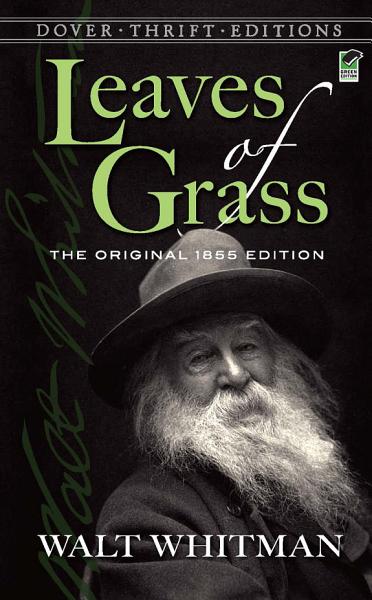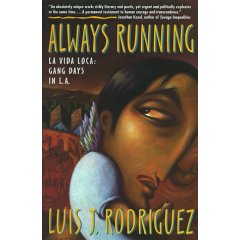- Author: Matt Sedillo
- Book: Mowing Leaves of Grass
- Publisher: Flowersong Press
- Publication Date: December 22, 2019
- SBN-10: 1733809295
- ISBN-13: 978-1733809290
- To Purchase: https://www.flowersongpress.com/books-1/p/mowing-leaves-of-grass

Got a lot of pain,
thank God I’m a poet
Trying to birth the faith,
even if I don’t know it
-Bazille, “Owl Feather
In Bazille’s refrain, he reminds us of the power of poetry – in particular to process pain that comes from systemic oppression. However, poetry is not simply about processing the agony of marginalization.

As Audre Lorde powerfully reminds in Poetry is Not a Luxury, “Poetry coins the language to express this revolutionary awareness and demand, the implementation of that freedom.” Thus, poetry can be a place to process, a place to dream, a place to express, and a place to struggle.
Within this context, it has been an absolute pleasure to dive into the no-holds barred Mowing Leaves of Grass by Chicano poet Matt Sedillo. The text is extremely difficult to describe as it vacillates between social criticism, autobiography, lyrical virtuosity, and just some base shit-talking all within a single poem. It is unabashedly Chicano-centric, pushing back against White norms and carving out a Brown-centered space in the process.
From the get-go, Sedillo goes for it. Even the title invites a fight! Sedillo takes aim directly at the White cannon of poetry, using an unlikely target: Walt Whitman’s Leaves of Grass. Sedillo’s title, Mowing Leaves of Grass, is extremely layered and contextual. First, “mowing” the whitestream classic of Leaves of Grass down to its appropriate size is meant (in my reading) to disrupt the cannon, and maybe even ask the question, “Why do we even have a cannon in the first place?”

Sedillo’s text itself is a beautiful chore to get through (I mean that as a compliment). For example, in the poem Pilgrim he deftly moves from personal narrative to classics in Chicano literature/scholarship (Always Running, Devil’s Highway, Occupied America, and The House on Mango Street), expert weaving the two together:
See, I come from the stock
Of starry-eyed astronauts
Who greet the night sky
With big dreams and wide eyes
Always Running
Down the Devil’s Highway
Through Occupied America
On the way back to
The House on Mango Street
-Pilgrim

While I understood the allusions in this refrain, there were other poems where the University of Google was my best friend to understand and engage Sedillo’s words. He expects the reader to keep up with him, but I can assure you that it is worth the time and energy to truly understand this rich text.
While the main thrust of the text is critiquing anti-Chicano racism and carving out space for raza, and then it is sometimes just funny and clever without losing its edge. For example, in the poem Seditious, he offers:
I declare this poem Seditious
An ode to my motherfucking self
A tribute to my travels
And a toast upon my name
–Seditious (An Ode to Self)

Turning his last name into an adjective (Sedillo=>Seditious), he playfully offers another searing social critique. In a society where, to again riff on Audre Lorde, Sedillo was not meant to survive, an unabashed affirmation of self is a seditious action. The same dynamics played out in Tucson when the state of Arizona banned the largest, most comprehensive, most successful K-12 Mexican American Studies program in the country.
When these brown students affirmed their humanity through these classes, the White state super intendents of public instruction said this represented an attempt to “overthrow the U.S. government.”
That is a not a typo, that is precisely what the Mexican American Studies teachers were accused of during this controversy, and instead of running from charges like these, Sedillo steps into them. He knows the potential consequences of Brown bodies affirming refusing Whiteness, proudly wearing the label seditious.

Throughout the text. Sedillo takes aim at White supremacy, Trumpism, anti-Brown social policies (e.g., Prop 187, SB1070, etc.), moderate liberals, the poetry cannon, and anyone/anything that stands in the way of Chicano self-determination.
Mowing Leaves of Grass hits like a straight shot of tequila no chaser, and that is precisely the raw beauty of the text.
Peace,
NCc/s
P.S. If you want to be an academic hype person and write a blog post in this space, hit me up at chicanostocracy@gmail.com. I’m always looking for opportunities to lift up each other, and I am happy to open this space to genuine folks looking to do right by their crew.

Article writing is also a fun, if you know after that you can write or else it is complex to write. Karly Symon Cerys
Oh my goodness! Amazing article dude! Thanks, However I am experiencing issues with your RSS. Devan Arnuad Tsan